
Investors have traditionally favored gold for precious metals, but there’s an alternative for those who prefer not to purchase physical gold.
Gold Exchange-Traded Funds (ETFs) offer a more convenient and efficient investment option. Select the best-performing gold ETFs that align with your investment goals due to the vast array of choices available.
In this guide, we highlight some of the top gold ETFs worth considering for investment, considering factors such as performance, expenses, liquidity, and overall advantages.
>> Consider eToro for Gold ETFs >>
| ETFs | Expense Ratio |
| SPDR Gold Shares (GLD) | 0.4% |
| iShares Gold Trust (IAU) | 0.25% |
| abrdn Physical Precious Metals Basket Shares ETF (SGOL) | 0.6% |
| GraniteShares Gold Trust (BAR) | 0.17% |
| VanEck Gold Miners ETF (GDX) | 0.53% |

The SPDR Gold Shares (GLD) stands out as the top choice among gold ETFs due to its impressive performance since 2004. It’s not only the largest gold ETF but also manages a substantial $55 billion in assets. With such size and market presence, this gold ETF can provide investors with stability and dependability.
GLD invests in physical gold bullion along with cash holdings. This unique approach allows investors to benefit from the movements in the price of gold, ensuring that the fund’s performance closely mirrors that of the precious metal itself.
Apart from its sheer size and investment strategy, GLD offers excellent liquidity for investors through an average daily trading volume of 5.77 million shares.
PROS
CONS
>> Consider SPDR Gold Shares >>

IAU, the iShares Gold Trust, is a well-regarded Exchange-Traded Fund (ETF) that gives investors exposure to the price movements of gold. With an impressive $30 billion in assets under management, it’s one of the largest funds in the gold ETF market. IAU is traded on the NYSE Arca exchange, making it easily accessible for investors.
One notable advantage of IAU over other gold ETFs like SPDR Gold Shares is its lower expense ratio. This means that investing in IAU can be more cost-effective when tracking the price of gold. Due to its size and liquidity, investors can buy and sell shares in IAU with ease. The fund has an average daily trading volume of 4.9 million shares.
In summary, IAU offers a reliable option for investing in gold through an ETF. Its large asset base, low expenses, and high liquidity make it an attractive choice for both individual and institutional investors alike.
PROS
CONS
>> Consider iShares Gold Trust >>

The abrdn Physical Gold Shares ETF, known as SGOL, presents an appealing opportunity for investors looking for a cost-effective gold ETF. With a low expense ratio of 0.17%, this fund offers great value by keeping fees reasonable.
SGOL holds physical gold bars that are stored securely in vaults located in Zurich and London. Although it has less than the largest gold ETFs on the market, it still boasts nearly $3 billion in assets under management, surpassing BAR.
SGOL enjoys good liquidity with an average daily trading volume of 2.14 million shares. One notable advantage of this ETF is its transparency. SGOL provides a list of its gold bars on its website for investors to review.
In conclusion, SGOL stands out as an attractive option due to its cost-effectiveness and transparent approach to holding physical gold assets. Investors can take advantage of the compelling value proposition offered by this fund while benefiting from secure storage and decent liquidity levels.
PROS
CONS
>> Consider abrdn Physical Gold Shares ETF >>

GraniteShares Gold Trust (BAR) is the best gold ETF stock that focuses solely on storing gold bullion in its London vaults. It offers a cost-effective alternative, with an expense ratio of 0.17% and a lower per share price compared to other gold-leveraged ETFs.
BAR can be easily traded through a brokerage account or on the NYSE Arca exchange. However, it has less liquidity than the other gold ETFs mentioned here, with an average daily trading volume of approximately 617,000 shares.
The fund’s commitment to transparency extends to its daily disclosure of the specific gold bars it holds, allowing investors to verify the physical assets backing their investment.
PROS
CONS
>> Consider GraniteShares Gold Trust >>

The VanEck Gold Miners ETF (GDX) presents an opportunity for investors to get involved in the gold mining sector. This ETF provides a comprehensive approach by including almost 50 prominent mining firms, such as the industry’s top two gold-mining companies: Newmont Corp. (NEM) and Barrick Gold Corp. (GOLD).
By investing in GDX, investors can gain exposure to a varied portfolio of stocks related to gold mining. GDX allows investors to potentially benefit from the positive performance of the gold mining industry.
The success of gold mining companies can be influenced by various factors like production levels, operational efficiency, and exploration achievements, which means that this ETF may be affected by market pressures rather than solely relying on the price of gold.
GDX boasts high liquidity with an average daily trading volume of 16.94 million shares traded. Moreover, it stands out from other ETFs mentioned in this guide as it offers dividend payments to its investors.
PROS
CONS
>> Consider VanEck Gold Miners ETF >>
Gold ETFs are financial instruments that expose investors to the price of gold without the need to buy, store, and sell the physical metal directly. Some gold ETFs track the price of gold itself, while others invest in companies within the gold-mining sector.
Similar to other types of Exchange-Traded Funds, the issuing company either purchases stocks of gold-related companies or acquires and holds physical gold bullion. Investors can then purchase shares in the fund, whose value fluctuates based on changes in either the underlying price of gold or the value of company stocks.
Gold is often considered a safe investment choice during times when stock markets experience declines. In fact, its price reached a record high close to $1,900 per ounce back in September 2011 following the Great Recession.
More recently, interest has been resurgent as prices have approached that historical milestone once again.
Have a thorough understanding of certain key factors before investing in gold ETFs. Gold ETFs provide the convenience and flexibility of exposure to gold, allowing you to buy and sell shares on stock exchanges instead of purchasing physical gold and dealing with storage and insurance.
When selecting a gold ETF, consider the expense ratio. This ratio represents the annual fee associated with owning the ETF, covering management, administrative, and marketing costs. Evaluating this expense ratio can help determine the cost-effectiveness of your investment.
Investors should also be mindful of tax implications. Selling ETF shares may result in capital gains or losses, with tax treatment varying based on factors such as holding period and tax jurisdiction.
Understanding these potential tax ramifications can guide decision-making and portfolio management. If you’re uncertain about these matters, it may be beneficial to consult a financial advisor for guidance.
>> Consider eToro for Gold ETFs >>
Here’s a step-by-step guide on purchasing shares in a gold ETF.
You can typically find gold ETFs by searching for them on your broker’s website.
Before investing in a gold ETF, there are two important factors to consider.
Here are a couple of important warnings: Regular investors should steer clear of purchasing leveraged gold ETFs. These types of ETFs utilize financial derivatives and borrowed funds to speculate on future price changes.
It’s best to avoid gold exchange-traded notes (ETNs). Unlike ETFs, ETNs are debt obligations that don’t possess actual ownership of the underlying gold. As a result, they carry a higher risk of credit default.
These investment options are specifically designed for professionals and aren’t suitable for individuals who prefer a buy-and-hold strategy commonly used by many retirement savers.
Purchasing ETFs is similar to purchasing stocks via an online broker. An effective strategy is to regularly invest in them, capitalizing on the benefits of dollar-cost averaging.
>> Consider eToro for Gold ETFs >>
An Exchange-Traded Fund (ETF) is a type of security that pools the money of multiple investors and uses it to purchase a diversified portfolio of assets.
Unlike individual stocks, ETFs offer investors lower risk because their investments are spread across multiple companies within a specific market sector or industry.
Gold ETFs, in particular, typically hold physical gold bullion in secure vaults or use financial instruments called derivatives to track the price movements of gold. Some gold ETFs also invest in companies involved in mining and financing gold production.
These ETFs issue shares that represent a specific amount of gold. As the price of gold fluctuates, the value of these shares will change accordingly. Investors can buy and sell these shares on stock exchanges throughout the trading day, providing them with liquidity and easy access to exposure to the price movements of gold.
Investing in gold can be approached in various ways, each offering its own set of pros and cons. Before making a decision, thoroughly analyze your investment objectives.
Factors such as your retirement timeline, expected income requirements (remember that gold doesn’t generate income unless sold), and overall risk tolerance should all be considered.
Investing in gold isn’t recommended for short-term strategies, as this precious metal tends to yield better results when held as a long-term investment within a portfolio.
Gold bullion or gold jewelry: Physical gold encompasses a wide array of forms, ranging from gold bullion, characterized by its investment-grade quality and 99.5% (995) purity, in the form of bars, ingots, coins, or rounds, to various jewelry and collectible items.
Many reputable dealers, custodians, and depositories are available to facilitate the acquisition of physical gold assets and ensure their secure storage.
Gold IRAs: A gold IRA stands as a distinctive retirement account category, permitting investors to possess physical gold, along with other precious metals like silver, platinum, and palladium, with the help of a gold dealer, custodian, and depository.
These self-directed IRAs, classified as such by the IRS, enable individuals to hold alternative assets within their retirement accounts, including gold, cryptocurrency, or real estate, which isn’t permissible with traditional or Roth IRAs.
Gold ETFs and mutual funds: For investors who are hesitant about selecting individual stocks, gold-leveraged ETFs and mutual funds offer an avenue for investing in gold with enhanced diversification compared to investing in individual gold mining stocks or owning physical gold.
These funds may hold shares in gold mining companies or enterprises involved in financing gold production and, in certain cases, even physical gold bullion itself.
This approach provides investors with increased exposure to the industry and a reduced risk profile as investments are distributed across a multitude of holdings.
>> Consider eToro for Gold ETFs >>
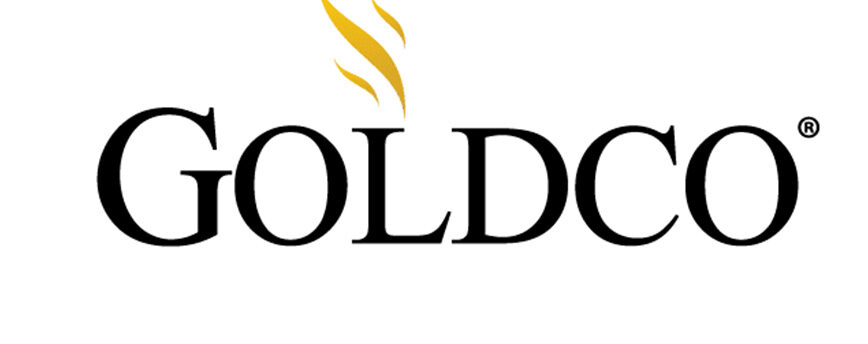
Goldco is an independently owned Gold IRA company based in California, specializing in the precious metals industry for over ten years. Their focus lies in gold IRA and asset protection services. They assist clients with starting or transferring their gold IRAs and guide tax-advantaged retirement plans.
Although Goldco does not impose any fees, there are additional charges such as custodian fees, setup, and annual maintenance fees, as well as storage fees ranging from $150 to $200 per year. To open a gold IRA account with Goldco, a minimum initial investment of $25,000 is required, and customers must go through a process that involves help from a representative.
Goldco boasts many positive customer reviews with an impressive rating of 4.8 out of 5 stars which reflects high levels of satisfaction regarding their communication skills, efficiency, specialist knowledge, and customer service.
However, the company has taken steps to address complaints related to excessive markups on products sold by them, along with cases where customers were provided misleading information resulting in delayed payouts.
For any queries or concerns related to their services or products offered by them can be addressed by contacting their customer support team, available Monday through Friday between 7 a.m. and 4 p.m. PST via telephone or the chatbot feature on their website.
>> Secure Your Future With Goldco Precious Metals >>

Based in Los Angeles, American Hartford Gold Group is a reputable provider of Individual Retirement Account (IRA) solutions focused on precious metals. Their offerings include diverse investment plans and the ability to purchase physical gold, silver, platinum, and palladium.
With a wealth of experience in safeguarding assets and leveraging market fluctuations to clients’ advantage, American Hartford Gold Group is an attractive choice for investors interested in precious metals IRA.
The company’s user-friendly website design and competitive pricing make it an appealing option for those looking to diversify their portfolios with these valuable resources.
>> Secure Your Future With American Hartford Gold >>

Founded by CEO Isaac Nuriani in 2012, Augusta Precious Metals provides silver and gold coins and bars for IRA investments. The company assures customers that their metals are of exceptional quality, with a purity level of 99%, excluding the American Gold Eagle coin.
Their pricing structure is conveniently accessible online and is determined by adding a margin to the base price, which can fluctuate depending on supply, demand, and economic conditions.
Augusta actively encourages potential investors to compare their prices with other dealers. They offer new investors a seven-day grace period during which they can reverse transactions if necessary.
Read the full Augusta Precious Metals Review here.
>> Secure Your Future With Augusta Precious Metals >>
Investing in Gold ETFs is often seen as a secure choice. Nevertheless, similar to any investment, there are risks involved, and it may not be suitable for everyone.
Thoroughly assess the ETF’s prospectus, grasp the underlying assets, and consider the volatility of the gold market as well as the credibility of the issuer. Consulting a financial advisor can help you determine if this investment aligns with your specific needs.
The tax treatment of gold ETFs can differ based on factors such as the investor’s country of residence, specific regulations in place, and the structure of the ETF. For instance, in the United States, gains from selling gold ETF shares held for more than one year might be subject to long-term capital gains tax rates.
Conversely, if these shares are held for one year or less, they could be subject to short-term capital gains tax rates. The tax implications surrounding gold ETFs are intricate, and it’s advisable to seek guidance from a financial advisor to understand better how you might be taxed before making any investments.
Gold ETFs, like any other investment, carry inherent risks. The price movement of gold, market sentiment, and macroeconomic conditions can all impact the value of these funds.
Although gold ETFs offer convenience, they do not provide the same level of security as physical ownership of gold. This lack of tangibility may or may not be important to certain investors.
Investors seeking exposure to gold prices often find a gold ETF to be a convenient and cost-effective option. Unlike purchasing and storing physical gold bullion, a gold ETF offers advantages such as lower transaction fees, improved liquidity, and easy access through a brokerage account.
For the top choice for an overall gold ETF, our recommendation is the SPDR Gold MiniShares Trust (GLD). GLD stands out due to its impressive performance history and low expense ratio, making it an exceptional all-around choice for those looking for exposure to the precious metal.
>> Consider eToro for Gold ETFs >>
Disclaimer: The authors of this post may be paid to recommend Goldco. The content on this website, including any positive reviews of Goldco may not be neutral or independent.

With the uncertain financial future, it's no surprise that investors are increasingly drawn to the captivating appeal of gold. However, is a Gold IRA a lucrative opportunity or a risky endeavor? In this blog article,...

Gold, a time-honored investment asset, has its fair share of proponents and detractors. Although opinions on its worth differ, it’s widely recognized that gold serves a distinctive purpose in financial markets to preserve value. While...

Investors have traditionally favored gold for precious metals, but there’s an alternative for those who prefer not to purchase physical gold. Gold Exchange-Traded Funds (ETFs) offer a more convenient and efficient investment option. Select the...

Gold has been a popular investment choice throughout history, protecting against various uncertainties like inflation, economic turmoil, currency fluctuations, and even times of war. When considering gold as an investment, it's essential not to limit...

Concerns about the economy and inflation persist among both experts and consumers as time goes on. Individuals increasingly seeking ways to safeguard their finances and adapt their investment strategies accordingly. Investing in gold is one...

Proper retirement planning is a crucial element in ensuring a stable financial future. It signifies the culmination of years of commitment, careful saving, and strategic investments, all aimed at achieving a comfortable and stress-free retirement....

When beginning the journey of building up your gold savings, one of the initial questions that arise is where to obtain physical gold. Thankfully, there are reputable Gold IRA companies such as Goldco and American...

Gold has always been a popular choice for investors throughout history. It safeguards against various uncertainties like inflation, economic instability, currency fluctuations, and even times of war. When considering investing in gold, it's essential not...

Silver IRAs, also known as precious metals IRAs or gold IRAs, enable individuals to secure assets backed by precious metals within their retirement accounts. Leading gold IRA firms typically offer a range of investment options,...

Envision a retirement in which your financial stability isn’t a source of uncertainty but rather a beacon of unwavering security, even in the face of economic turmoil. This high level of reassurance isn’t attainable but...

Gold has built a strong reputation over time as a dependable means of preserving value and protecting against economic uncertainties. For many years, it has been the go-to option for investors seeking to secure their...
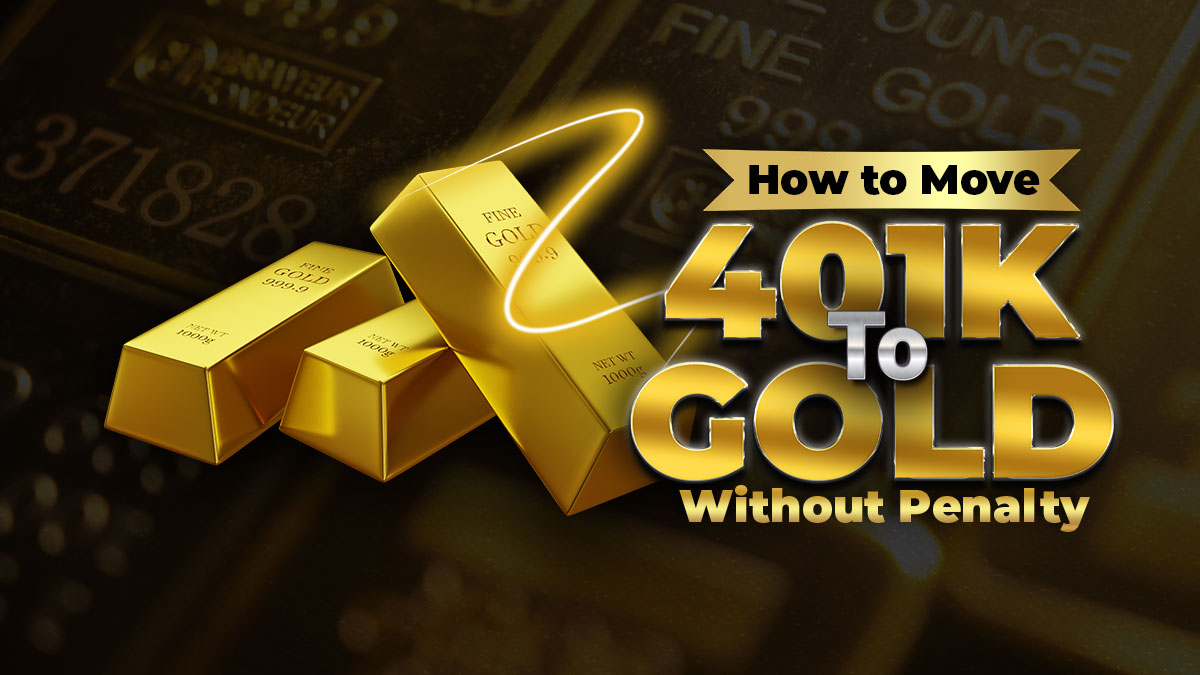
If you have concerns about the future of your retirement savings and are contemplating converting your 401k to gold, facing no penalties, this guide is tailor-made for you. Given the increasing volatility of the market...

Securing a stable financial future and saving for retirement are of utmost importance, and an IRA account can serve as a valuable tool for achieving these goals. One viable option is the gold IRA rollover,...
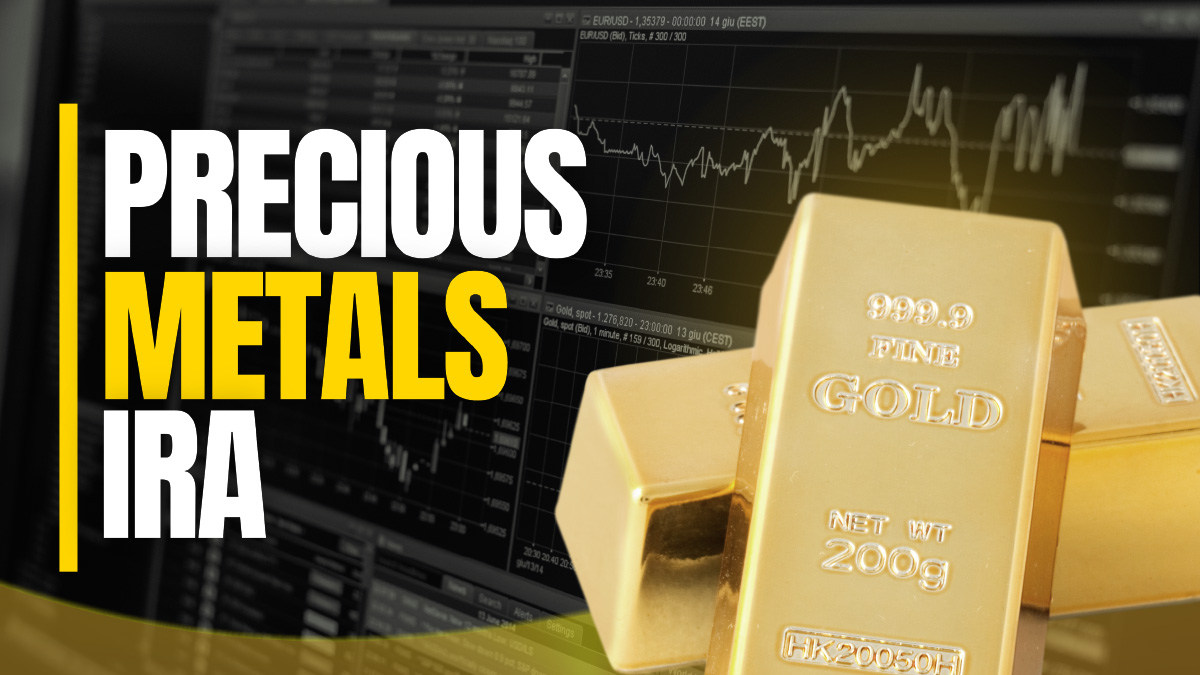
Are you searching for a retirement investment option involving precious metals IRA? If so, you're lucky because we have the perfect guide. As the demand for these timeless treasures rises, we will explore the top-notch...

Are you seeking a secure investment opportunity to safeguard and enhance your financial future? Augusta Precious Metals is the answer. If you're considering investing in precious metals as part of your retirement plan, look no...

Are you considering investing in the American Hartford Gold Group? Are you in search of the ideal choice for your retirement plan? Look no further because this is where you'll find all the answers. We...

If you're searching for the best gold IRA company, Oxford Gold Group is worth considering. We understand the significance of making the right choice when selecting a company, and we’re here to provide valuable insights...

If you're searching for a secure investment option, Advantage Gold could be the ideal solution for safeguarding your retirement plan. We recognize the importance of choosing a reputable company for your investments and have extensively...
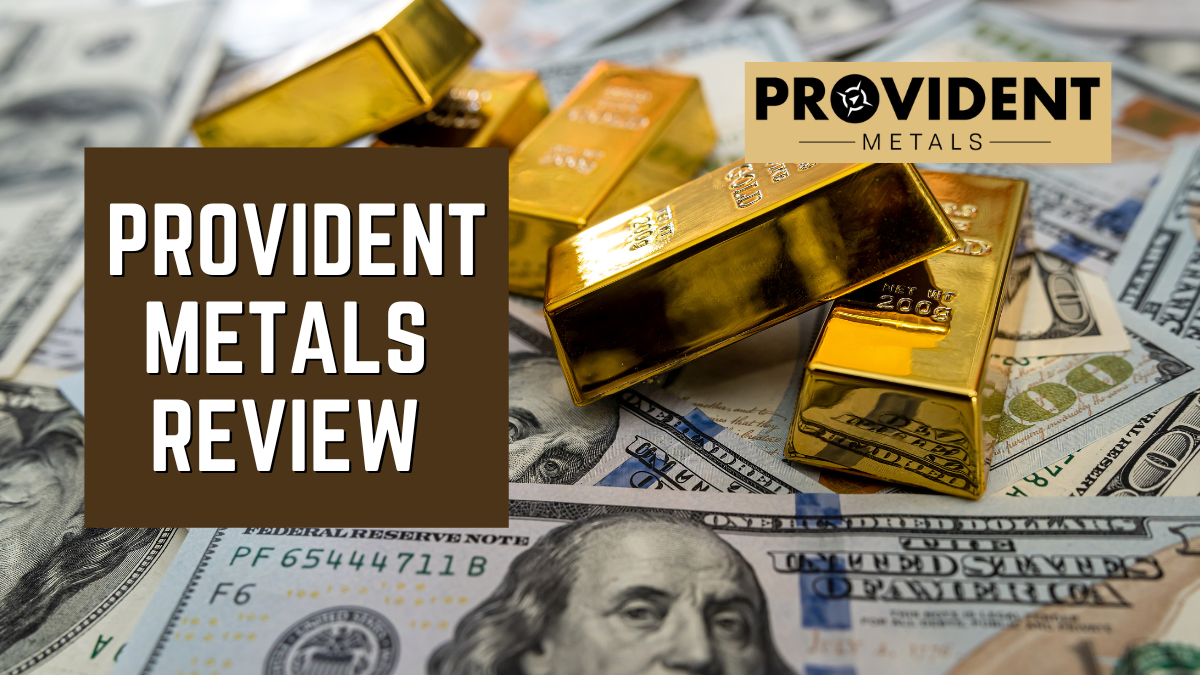
If you're searching for a secure investment option, look no further than Provident Metals. Our company specializes in helping individuals like you secure their retirement plans through strategic investments. We understand the importance of choosing...

If you're contemplating investing with Noble Gold Group and want to ensure it's the best choice for your retirement plan, you've come to the correct place. Choosing the perfect company to entrust your investments with...

If you're searching for a secure investment opportunity, look no further. Patriot Gold Group is the perfect choice for securing your retirement plan. We have valuable insights to offer and understand the importance of selecting...

Are you curious about whether Goldco is the ideal company for your investment goals? Well done, you've come to the correct destination. Accompany us on an enthralling expedition as we explore the intricacies of this...

If you're considering investing with Lear Capital and want to determine if it's the right choice for your retirement plan, this is the perfect place. We recognize the significance of choosing a dependable company for...
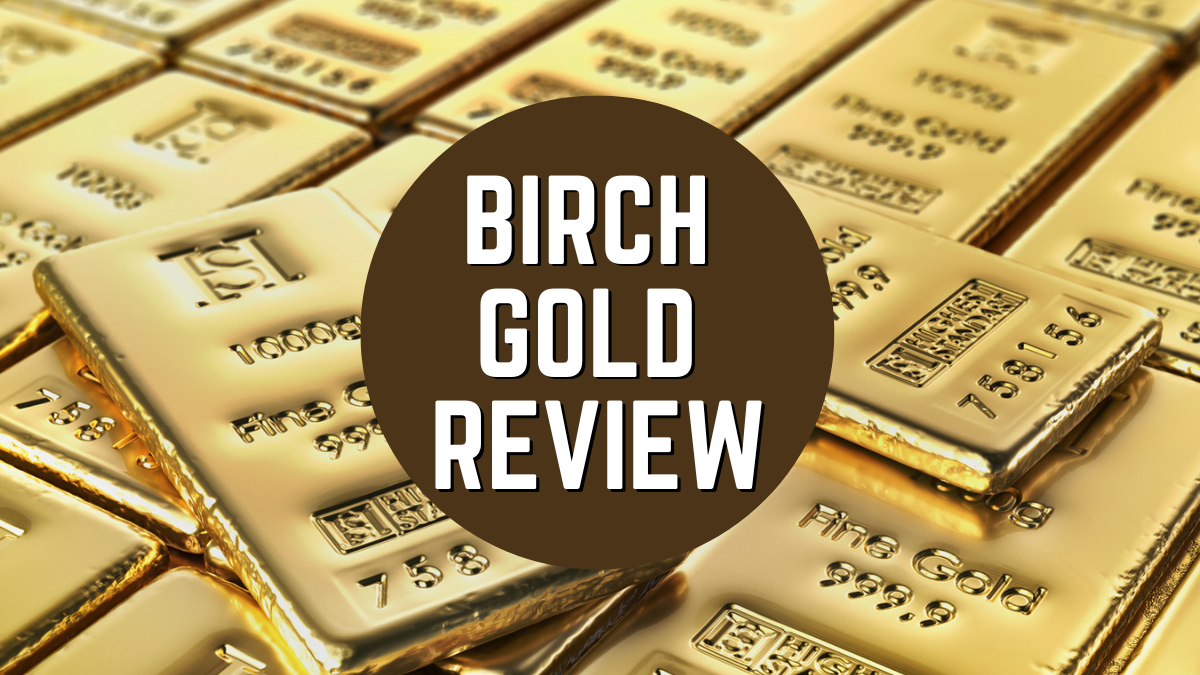
If you're contemplating Birch Gold Group as a potential choice for your retirement plan or investment, look no further. We recognize the importance of selecting the right company and are here to provide you with...
Privacy Policy | Terms and Conditions
This website provides general information and is not tailored to the specific goals of any individual. Please be aware that all investments carry inherent risks. When dealing with precious metals, it's important to understand that their prices may fluctuate, resulting in the potential for the value of your metals to increase or decrease over time. Consequently, you may sell them for more or less than your initial purchase price. Past performance should not be construed as a guarantee of future results. This website, while providing information on precious metals, does not make guarantees, assurances, or promises regarding future market movements, prices, or profits. It is essential to note that, despite our information on precious metals, we are not licensed financial advisors and do not provide financial advice. Furthermore, this website does not offer tax or legal advice and does not provide guidance on the tax or legal implications associated with buying or selling precious metals or establishing a Precious Metals IRA. For such services, individuals are strongly encouraged to seek consultation with qualified investment, legal, or tax professionals.
© Copyright 2024 Gold IRA Partners Gold IRA Partners. All Rights Reserved.